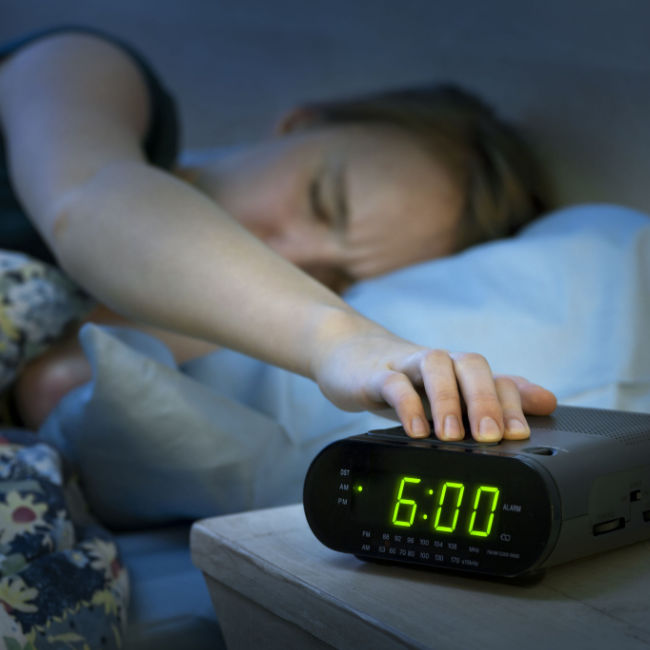There are a few habits that you may associated with a higher risk of heart disease, such as frequently eating fried foods and leading a sedentary lifestyle. However, in addition to the obvious bad habits you should be avoiding to reduce your risk of cardiovascular issues, there’s one important factor you may not have considered: your sleep. As it turns out, experts warn that not sleeping enough—and even sleeping too much—could be taking a toll on your heart health.
To learn more about the link between sleep and heart health, we spoke to cardiologist Dr. Nick West, Chief Medical Officer and DVP of Global Medical Affairs at Abbott’s vascular business and Dr. David Seitz, MD of Ascendant Detox. They told us that poor sleep could lead to hormonal changes, inflammation, and more issues that contribute to clogged arteries and heart disease. Find all of their expert insight below.


Poor sleep habits and heart health
Sleep is essential to practically every area of your overall health. While you may frequently consider the effects it plays on your energy, focus, and brain health, it's important to remember that a lack of sleep can negatively effect your health in a number of ways. As it turns out, that includes your heart health. And it isn't just a lack of sleep that could take a toll on your heart. Too much sleep may also have adverse effects.
"The relationship between the amount of sleep and risk of cardiovascular disease is complex," Dr. West says. "Both lack of sleep (<6 hours per night) and excess sleep (>9 hours) have both been associated with increased risk in observational studies."
He explains that in extreme cases, sleep deprivation can lead to "endocrine/hormonal and hemodynamic changes," as well as inflammation, which can result in obesity, type 2 diabetes, mellitus, and high blood pressure, "all of which can increase the risk of stroke, heart attack and cardiovascular death." Yikes!
READ MORE: Experts Agree: L-Theanine May Give You A More Restful Sleep Than Melatonin

Dr. Seitz echoes this warning, explaining that poor-quality sleep can increase your body's cortisol production. "Cortisol is a stress hormone that can increase blood pressure and cholesterol levels," he says. "This can lead to the buildup of plaque in your arteries, known as atherosclerosis, which increases the risk of heart attack and stroke." He also notes that the inflammation at hand "contributes to the hardening and narrowing of the arteries, as well as other health problems such as diabetes."
In addition to hormonal changes and inflammation, Dr. Seitz points out that poor sleep can also lead to fatigue and a weakened immune system, "making it harder to fight off infections that can further contribute to heart problems." It's also worth noting that a lack of sleep is associated with higher levels of stress and anxiety, both of which contribute to higher cortisol levels. "All of these factors make it easier for plaque to build up in arteries and increase the risk of cardiovascular disease," Dr. Seitz says.
READ MORE: 4 Healthy Habits You Should Be Following For Better Sleep, According To Doctors

In order to ensure you're getting a healthy amount of sleep each night so that your heart stays as health as possible, Dr. Seitz recommends establishing a regular bedtime routine, avoiding stimulants caffeine before bed, and wearing comfortable clothes.
Ultimately, if you're dealing with insomnia, the best choice for your overall health is to consult a medical professional. "If you have difficulty sleeping or suspect you may have an underlying medical condition that could be impacting your sleep, it's important to talk to your doctor. They can help identify any underlying conditions that may be causing difficulty sleeping and provide the right treatment to get you back on track," Dr. Seitz concludes.


























